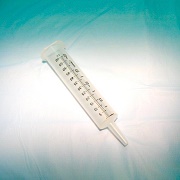ACO Model Boosts Care Coordination for Kidney Failure Patients

- The healthcare industry is determined to strengthen patient care and improve quality through better care coordination among medical teams and across hospitals, rehabilitation centers, and clinics. Care coordination has been the name of the game since the Patient Protection and Affordable Care Act pushed forward the creation of Accountable Care Organizations (ACOs).

Recently, the Centers for Medicare & Medicaid Services (CMS) has announced the creation of a new ACO model for kidney failure patients in need of dialysis, according to a press release from the organization.
With more than 600,000 patients suffering from renal disease throughout the nation and needing dialysis treatment a handful of times per week, care coordination is key toward improving the quality of care among this patient population.
With patient populations at high risk of hospital readmissions and receiving care from a wide variety of providers, it’s vital to incorporate these patients in an effective ACO model, which is why CMS is looking to improve healthcare delivery and establish an Accountable Care Organization prototype for kidney failure patients.
This specific patient population also compromises 5.6 percent of total Medicare spending and it is hoped that effective care coordination could alleviate some of these costs. CMS announced the creation of the Comprehensive ESRD Care (CEC) Model, which was made possible with provisions from the Affordable Care Act.
ACOs are essentially a group of physicians and other healthcare providers that come together to better coordinate the care for a patient population and take on responsibility for the cost of care as well.
The new ACO model was created specifically for patients with end-stage renal disease (ESRD) and is hoped to push forward care coordination among providers managing this population. This new program has fundamental building blocks from the Pioneer ACO Model as well as the Shared Savings Program.
Currently, dialysis experts, nephrologists, and dialysis facilities have come together to form the ESRD Seamless Care Organizations (ESCOs) to improve the quality of care among kidney failure patients. These providers will take part in managing Medicare Part A and Part B spending and have financial accountability for the health outcomes of this patient population.
The new model will push providers to move beyond their ordinary, everyday roles and responsibilities and offer more patient-centered care that help meet patient needs both in and out of the dialysis center.
“This new ACO model represents a paradigm shift in care for beneficiaries with end-stage renal disease; it promotes a patient-centered approach to their dialysis and non-dialysis care needs that will help accomplish our delivery system reform goals of better care, smarter spending, and healthier people,” Patrick Conway, M.D., MSc, acting deputy administrator and chief medical officer, CMS, stated in the news release.
Dialysis facilities that participate in this new ACO model will have the chance to take part in shared savings payments as well. As the healthcare industry continues to put more emphasis on care coordination, patient populations with various chronic medical conditions will likely receive better quality care and experience improved health outcomes.
